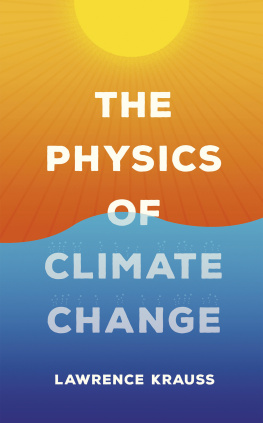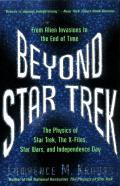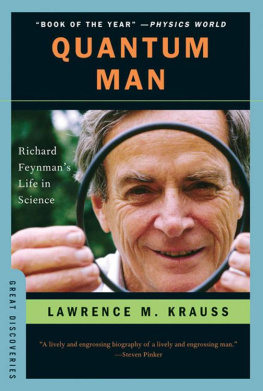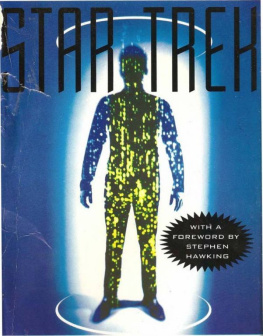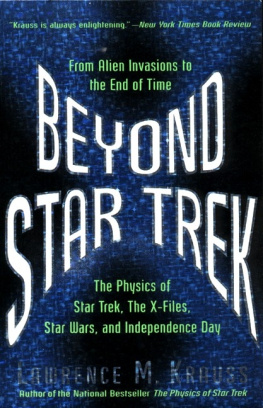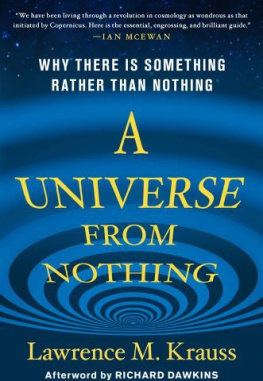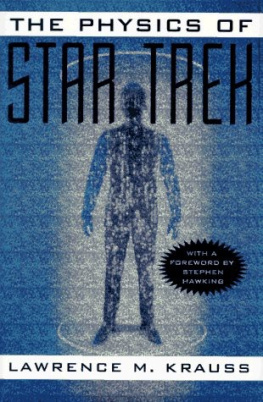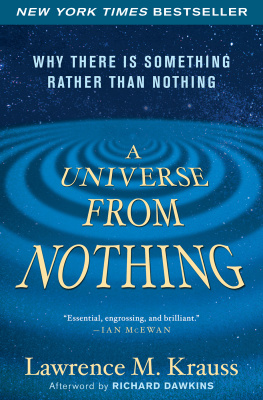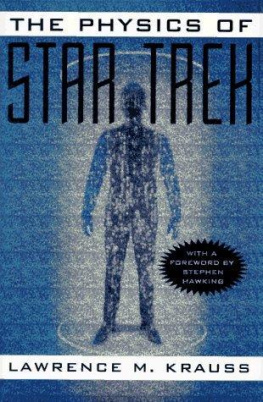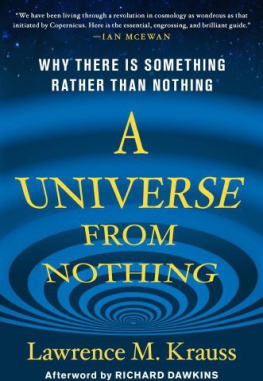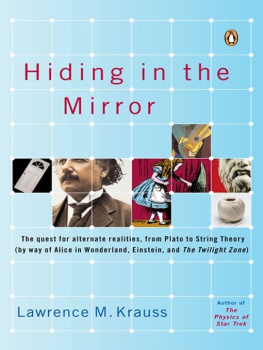Lawrence M. Krauss - The Physics of Climate Change
Here you can read online Lawrence M. Krauss - The Physics of Climate Change full text of the book (entire story) in english for free. Download pdf and epub, get meaning, cover and reviews about this ebook. publisher: Head of Zeus, genre: Children. Description of the work, (preface) as well as reviews are available. Best literature library LitArk.com created for fans of good reading and offers a wide selection of genres:
Romance novel
Science fiction
Adventure
Detective
Science
History
Home and family
Prose
Art
Politics
Computer
Non-fiction
Religion
Business
Children
Humor
Choose a favorite category and find really read worthwhile books. Enjoy immersion in the world of imagination, feel the emotions of the characters or learn something new for yourself, make an fascinating discovery.
- Book:The Physics of Climate Change
- Author:
- Publisher:Head of Zeus
- Genre:
- Rating:5 / 5
- Favourites:Add to favourites
- Your mark:
- 100
- 1
- 2
- 3
- 4
- 5
The Physics of Climate Change: summary, description and annotation
We offer to read an annotation, description, summary or preface (depends on what the author of the book "The Physics of Climate Change" wrote himself). If you haven't found the necessary information about the book — write in the comments, we will try to find it.
The Physics of Climate Change — read online for free the complete book (whole text) full work
Below is the text of the book, divided by pages. System saving the place of the last page read, allows you to conveniently read the book "The Physics of Climate Change" online for free, without having to search again every time where you left off. Put a bookmark, and you can go to the page where you finished reading at any time.
Font size:
Interval:
Bookmark:

THE PHYSICS
OF CLIMATE CHANGE
THE
PHYSICS
OF
CLIMATE
CHANGE
LAWRENCE M. KRAUSS
AN APOLLO BOOK
www.headofzeus.com
An Apollo book,
first published in the UK in 2021 by Head of Zeus Ltd
Copyright Lawrence M. Krauss, 2021
The moral right of Lawrence M. Krauss to be identified as the author of this work has been asserted in accordance with the Copyright, Designs and Patents Act of 1988.
All rights reserved. No part of this publication may be reproduced, stored in a retrieval system, or transmitted in any form or by any means, electronic, mechanical, photocopying, recording, or otherwise, without the prior permission of both the copyright owner and the above publisher of this book.
A catalogue record for this book is available from the British Library.
ISBN (HB): 9781800244788
ISBN (E): 9781800244795
Head of Zeus Ltd
58 Hardwick Street
London EC R RG
WWW . HEADOFZEUS . COM
For Woody,
who convinced me to keep writing
No man ever steps in the same river twice,
for its not the same river, and hes not the same man.
H ERACLITUS

E ARLY ONE AFTERNOON IN J ANUARY OF 2020, I FOUND MYSELF sitting alone at the bow of a riverboat traveling down the Mekong River from Phnom Penh to Ho Chi Minh City. I was finishing preparations for a lecture and enjoying the sunshine and breeze while watching the busy river traffic. Everywhere, there were barges relentlessly digging up sand from the river bottom for later use, among other things, as concrete for building products. According to the Mekong River Commission, sand mining has caused the riverbed to lose 1.4 meters of elevation since 2008.
As I looked around, I began to feel a growing sense of sadness combined with loneliness. Sadness because the lecture I had just finished preparing for travelers on the boat involved the nature and physics of climate changewith a focus on the potential impact for the Mekong Delta. During my research, I had come to realize how a confluence of factors made this region, home to sixty million peopleat least fourteen million of whom depend directly on the health of the Mekong Deltathe epicenter of a Perfect Storm, where even the more conservative predictions of global climate change in the next thirty years may devastate the entire area and the lives of the people who live in it.
Many of my fellow shipmates, a few of whom joined me up front as the afternoon wore on, were as of yet unaware of the fragility of the landscape that then surrounded us, and I wasnt eager to burst their bubble later that evening.
After the discussions following my lecture a few hours later, it became clear that while some of the realities were unpleasant, the well-meaning and interested laypeople who had gathered on the boat wanted information to put this global existential issue in perspective. They wanted to figure out how to separate the wheat from the chaff, to see what was at stake, and learn what possible future impacts humanity might and might not be able to affect. That was when I decided to write this book, and I thank my shipmates for inspiring me.
*
I am not a climate scientist. You may wonder why a particle physicist and cosmologist would wade, literally, into this subject. Because others, whose future depends on the policies governments enact and who also have to assess the discrepant claims emanating from politicians and the media, are not climate scientists either. If it isnt possible to explain the scientific principles and predictions associated with climate change in a straightforward and accessible fashion, then what hope is there for any rational public discourse and decision-making on the subject?
If the goal is to create something that provides readers a reasonably informed perspective of this subject in particular, where does one begin?
First off, it is worth recognizing that climate change science is not rocket science. Having once written a book about rocket science, or at least imaginary rocket science, I decided I was in a good position to judge. And the urgency of the issue is surely greater than pondering the possibilities of space travel in the twenty-third century, as fascinating as those might be.
Next, the details of large-scale supercomputer climate models that make detailed predictions about the future are complex and intimidating, but the underlying physics governing global warming is nevertheless straightforward and grounded in basic science. As a plus, it turns out there are historical twists and new connections between scientific disciplines that add spice. And for those who are particularly interested, a wealth of data is now freely available for anyone to follow up with on the web.
*
I am fortunate to have been educated by a number of climate change experts who are both colleagues and friends. For over a decade, I was chairman of the Board of Sponsors of the Bulletin of the Atomic Scientists. When I joined the board in 2006, we chose to include climate change as an additional existential threat when we decided upon the setting of the famous Doomsday Clock. Each fall, we would host a symposium to discuss scientific and technological challenges, then the science and security board, which included various climate experts, would further discuss the issues raised during the symposia when we decided on how to set the Clock. Later, I was fortunate to host several scientific meetings and public events on climate change. Most recently, the Origins Project Foundation I lead organized the Mekong cruise I lectured on.
I am thankful for the discussions I had with colleagues during these years, including James Hansen, Richard Somerville, Susan Solomon, Dan Schrag, Tony Haymet, Raymond Pierrehumbert, and the late Wallace Broecker, among others, many of whom also provided me with useful data and figures. I thank these individuals for their intellectual and personal generosity.
Numerous friends, colleagues, and experts were also kind enough to review this book at various stages. I am deeply indebted in particular to Richard Dawkins, Dan Schrag, Penn Jillette, Richard Somerville, Neil deGrasse Tyson, William Frucht, Sheldon Glashow, Keith Ogorek, and John Dahl for critically reading, commenting on, and improving this manuscript. I am also indebted to the numerous scientists who provided me with permission to reproduce figures from their work in this book. Any errors that remain are, of course, my own.
The support and encouragement I received from a host of people during and after the writing of this book have been particularly important. I was surprised and dismayed as numerous publishers and editors I reached out to indicated to me that they thought the only marketable books on climate change would be ones that appeal to emotions and communicate only to the true believers through a sense of doom and gloom. Since they are in some sense the gatekeepers for what information the public gets, this demonstrated to me how important it is to combat that perception with a book that could provide actual information the public can use to make informed decisions about how to respond to what they might read in the papers or hear from politicians.
The science behind climate change is accessible and interesting, and it should be the basis of arguments and policy discussions. Appealing purely to emotion or using scare tactics should not be the way to encourage action, just as encouraging inaction by denying the evidence and underlying science is inappropriate.
Font size:
Interval:
Bookmark:
Similar books «The Physics of Climate Change»
Look at similar books to The Physics of Climate Change. We have selected literature similar in name and meaning in the hope of providing readers with more options to find new, interesting, not yet read works.
Discussion, reviews of the book The Physics of Climate Change and just readers' own opinions. Leave your comments, write what you think about the work, its meaning or the main characters. Specify what exactly you liked and what you didn't like, and why you think so.

